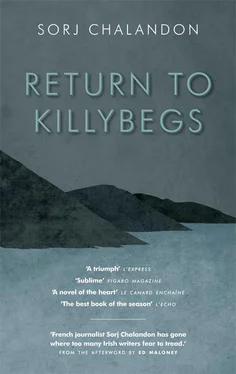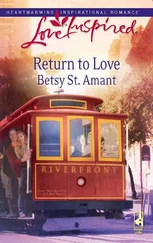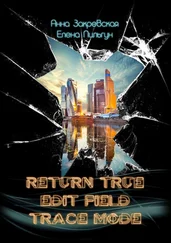— You watch too many films, Danny!
I raised my hand. I came to his aid.
— My father was a socialist as well as a Republican and wanted to fight the Francoists in Spain. Now Franco and Hitler are hand in hand, but where are we?
— Do you know who was the leader of the Connolly Column of the International Brigades? the teacher asked.
Of course I knew. My father had never met him but he’d talked about him for a long time as our future leader.
— With Frank Ryan, we’ll crush the Irish fascists, the Blueshirts, all those dirty Brits! my father used to say.
For him, ‘British’ was synonymous with bastard. On the street or in the pub, any guy who wound him up was a Brit.
— Frank Ryan, I replied.
— And do you know where Frank Ryan is today?
No. I didn’t know. I imagined he was probably imprisoned in Spain or dead.
— In Berlin, the teacher continued.
I was flabbergasted. Frank Ryan, the socialist, the internationalist, the red, in Berlin? I sat there with my mouth agape.
— A problem for Great Britain means a solution handed to Ireland, our teacher reiterated.
We were just kids. I looked at my friends’ faces. We wanted to fight for the liberty of our country, to honour her memory, preserve her terrible beauty. Our treaties and alliances mattered little. We were ready to die for one another. Truly. And some amongst us would keep that promise.
I asked no more questions, and Danny kept his to himself.
He and I were going to wage war against the English, as our fathers had done before us. And our grandfathers, too. Asking questions was like laying down our arms.

At the end of February 1942, an IRA man entrusted me with my first pistol.
Tom Williams had posted us all over the quarter. As a sign of recognition, the girls wore green bows in their hair. The boys were all wore the red and white scarf of the Cliftonville Football Club. It was a weekday. The Belfast Solitude stadium was closed.
— There’s no match today, lads! we were told by laughing men when they saw us heading solemnly up the road.
The Republican soldiers could spring up at any moment. We were waiting for them, posted at crossroads. I was standing under a porch, leaning against the wall of an unfamiliar house. When the IRA man arrived, I jumped. He was running, his hand under his coat and his tie flying back over his shoulder. He handed me a gun. He had just wounded a soldier with a bullet in the neck. I took the weapon from him with both hands, stuffed it down my trousers, pressed flat against my belt. I crossed the road. My whole body was quivering. After a few metres a woman I had never met came up to me. She was carrying a football in a willow basket. She handed it to me without a word, then took my hand. I was slightly ashamed. I was a sixteen-year-old Fianna in active service being led along by this woman as though I were her small child.
— Someone will take you in charge. Let yourself be led, Tom had told me.
The armoured cars were surrounding the enclave. At the roadblocks, the police were searching the men, their arms in the air. A soldier beckoned us to come forward, the woman with her basket, me with my ball. In front of him the woman treated me like I was a good-for-nothing. In a very sharp, harsh and unpleasant tone she cursed the heavens aloud for having given birth to such an idiot. The British man hesitated. He threw me a sympathetic look, at once kindly and complicit — an expression of one unfortunate child recognizing another. He waved us through, and I smiled back at him, not to escape him, but to thank him.
This demonstration of humanity has haunted me for a long time. And bothered me for a long time. There couldn’t possibly be a man under that helmet, surely he was only a barbarian. To think the contrary was to falter, to betray. My father had taught me that. Tom used to reiterate it. I walked more quickly, still holding that woman’s hand, my mother in war, her child in combat. And I never spoke of that encounter to anyone, ever. Nor did I describe that look, or admit my smile.
We went to Donegal’s, a pub on the Falls Road. The room was packed. As soon as he saw us, the boss opened the security door that opened on to the backyard where two men were waiting for me, sitting on beer kegs. My arms were dangling. One of them opened my coat. When he saw the butt of the gun, he paled.
— Fucking idiot! he murmured, removing the handgun with care.
The other guy shook his head.
— What did I do?
The first man looked at me. It was as though he’d only just noticed my presence.
— Who? You, Fianna?
— Nothing, me lad, you were perfect, the other replied.
Then he turned back to the gun.
I found myself in the street, stomach bare, without that deadly weight between my skin and my shirt. My teeth were chattering. I’d had time to see the handgun. The IRA man had handed it to me with the hammer raised, ready to shoot. I had taken it from him carelessly, buried it in my trousers like a dirty magazine to show my pals. My finger had hit the deck plate, brushed against the trigger. The slightest pressure and it would have gone off. I had walked like that for fifteen long minutes, its barrel crushed against my member. Death was on the prowl. It had let me off, I must have made it smile.
5. Killybegs, Monday, 25 December 2006
This morning, two gardaí came to see me. They were embarrassed. I was drunk. I invited them in for a vodka, a festive drop. They declined. Their car was parked on the road, at the edge of the forest.
— Are you Tyrone Meehan? the younger asked.
I said I was.
The skin on his face was dark from some childhood illness. He took a notebook from his jacket. The other was looking at my cottage through the open door behind me. The large room with its bare walls, the sink with no running water, the gas lamp on the messy table, the candles, the smoke from the fireplace, the clay floor.
— You’ve come back to the country? the older one asked, searching my eyes.
I nodded. I had my hands in my pockets and had only a sweater on, no coat. I lowered my eyes.
— Are you intending to stay?
— I am staying.
The guard wrote something other than those three words, as though noting down his impressions.
— Are you living here alone?
Same nod of my head. What was I to answer? They knew that already, along with all the rest. From my first day, the Garda Síochána had been passing along the road and observing my hermit’s existence. They had seen Sheila bringing me supplies and beers. Yesterday they even took my photo as I was leaving the pub. I’d wondered when they would have the courage to come up the path and knock on my door. But now that they were standing facing me, I was disappointed. The younger one avoided my gaze and scribbled nonstop in his notebook. The other guard seemed to be counting the wrinkles on my forehead.
I took the old sliotar from my pocket, needing to do something with my hands.
— Are you… are you taking precautions?
That was how the young lad asked, biting his lip. I smiled without responding.
— That was a question, Mr Meehan, the other added.
— Are you afraid of having a corpse on your hands?
The younger man tried to protest. The older man said yes. That was it. Exactly. He explained that the villagers were starting to talk. I’d been recognized, first by the shopkeeper, and then by the guy from the post office. The owner of Mullin’s was wondering whether he should bar me. They weren’t judging me, according to the guard. Nobody was out to blame, or even to criticize me. They were simply afraid for themselves.
Читать дальше













